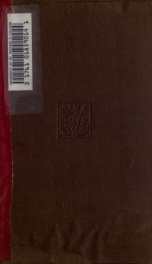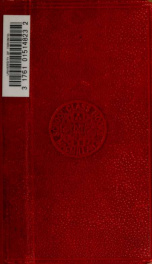Demosthenes

Charles Rann Kennedy (1808 - December 17, 1867) was an English lawyer and classicist, best remembered for his involvement in the Swinfen will case and the issues of contingency fee agreements and legal ethics that it involved. Kennedy was born in Birmingham, the younger brother of Benjamin Hall Kennedy. He was educated at Shrewsbury School and Trinity College, Cambridge, where he graduated as senior classic (1831).[1] He then became a barrister. From 1849-1856 he was professor of law at Queen's College, Birmingham.[2] In his academic role, he advised the judge Lord Denman in the important parliamentary privilege case of Stockdale v. Hansard.[3] As counsel to Mrs Swinfen, the plaintiff in the celebrated will case Swinfen v. Swinfen (1856), he brought an action for remuneration for professional services, but the verdict given in his favour at Warwick assizes was set aside by the court of Common Pleas, on the ground that a barrister could not sue for the recovery of his fees.[2] The excellence of Kennedy's scholarship is abundantly proved by his translation of the orations of Demosthenes (1852-1863, in Bohn's Classical Library), and his blank verse translation of the works of Virgil (1861). He was also the author of New Rules for Pleading (2nd ed., 1841) and A Treatise on Annuities (1846).[2] His grandson, also named Charles Rann Kennedy (1871 - 1950), was a playwright and actor who married actress Edith Wynne Matthison.[2] This article incorporates text from the Encyclopædia Britannica, Eleventh Edition, a publication now in the public domain.
do you like this author?
What readers are saying
What do you think? Write your own comment on this book!
write a commentWhat readers are saying
What do you think? Write your own comment on this author!
write a commentBook list

The Olynthiacs and the Phillippics of Demothenes
Series:
Unknown
Year:
Unknown
Raiting:
4.5/5
Show more
add to favoritesadd In favorites
Book list

The Olynthiacs and the Phillippics of Demothenes
Series:
Unknown
Year:
Unknown
Raiting:
4.5/5
Show more
add to favoritesadd In favorites

The Orations of Demosthenes : pronounced to excite the Athenians against Philip, King of Macedon, and on occasions of public deliberation
Series:
Unknown
Year:
Unknown
Raiting:
3.5/5
30 31 43
Show more
add to favoritesadd In favorites

The crown, the Philippics and ten other orations of Demosthenes
Series:
Unknown
Year:
Unknown
Raiting:
2.5/5
Bibliography: p. xii-xiii 31
Show more
add to favoritesadd In favorites

Select private orations. Introd. and English commentary by F.A. Paley. With supplementary notes by J.E. Sandys. Edited for the Syndics of the University Press pt.2
Series:
Unknown
Year:
Unknown
Raiting:
4/5
26
Show more
add to favoritesadd In favorites

The orations of Aeschines Against Ctesiphon : and Demosthenes De corona
Series:
Unknown
Year:
Unknown
Raiting:
4.5/5
26
Show more
add to favoritesadd In favorites

The Orations of Demosthenes: Pronounced to excite the Athenians against Philip, King of Macedon. Translated by Thomas Leland 1
Series:
Unknown
Year:
Unknown
Raiting:
4.5/5
26
Show more
add to favoritesadd In favorites

The Orations of Demosthenes: Pronounced to excite the Athenians against Philip, King of Macedon. Translated by Thomas Leland 2
Series:
Unknown
Year:
Unknown
Raiting:
3.5/5
26
Show more
add to favoritesadd In favorites
![[Orations] Translated, with notes, &c. by Charles Rann Kennedy 2_cover](/img/standard/standard_book.png)
[Orations] Translated, with notes, &c. by Charles Rann Kennedy 2
Series:
Unknown
Year:
Unknown
Raiting:
4.5/5
26 52
Show more
add to favoritesadd In favorites

Demosthenous Peri tou stephanou. Demosthenes On the crown; with critical and explanatory notes, an historical sketch and essays
Series:
Unknown
Year:
Unknown
Raiting:
4/5
26
Show more
add to favoritesadd In favorites

Speech against Meidias. With introd. and notes by John R. King
Series:
Unknown
Year:
Unknown
Raiting:
2.5/5
26
Show more
add to favoritesadd In favorites

Oeuvres complètes de Démosthène et d'Eschine en grec et en français 9
Series:
Unknown
Year:
Unknown
Raiting:
3.5/5
26 45
Show more
add to favoritesadd In favorites

Oeuvres complètes de Démosthène et d'Eschine en grec et en français 10
Series:
Unknown
Year:
Unknown
Raiting:
3/5
26 45
Show more
add to favoritesadd In favorites

Oeuvres complètes de Démosthène et d'Eschine en grec et en français 2
Series:
Unknown
Year:
Unknown
Raiting:
4.5/5
26 45
Show more
add to favoritesadd In favorites

Oeuvres complètes de Démosthène et d'Eschine en grec et en français 1
Series:
Unknown
Year:
Unknown
Raiting:
5/5
26 45
Show more
add to favoritesadd In favorites
What readers are saying
What do you think? Write your own comment on this author!
write a commentif you like Demosthenes try:
readers also enjoyed
What readers are saying
What do you think? Write your own comment on this author!
write a commentGenre
if you like Demosthenes try:
readers also enjoyed
Do you want to exchange books? It’s EASY!
Get registered and find other users who want to give their favourite books to good hands!


